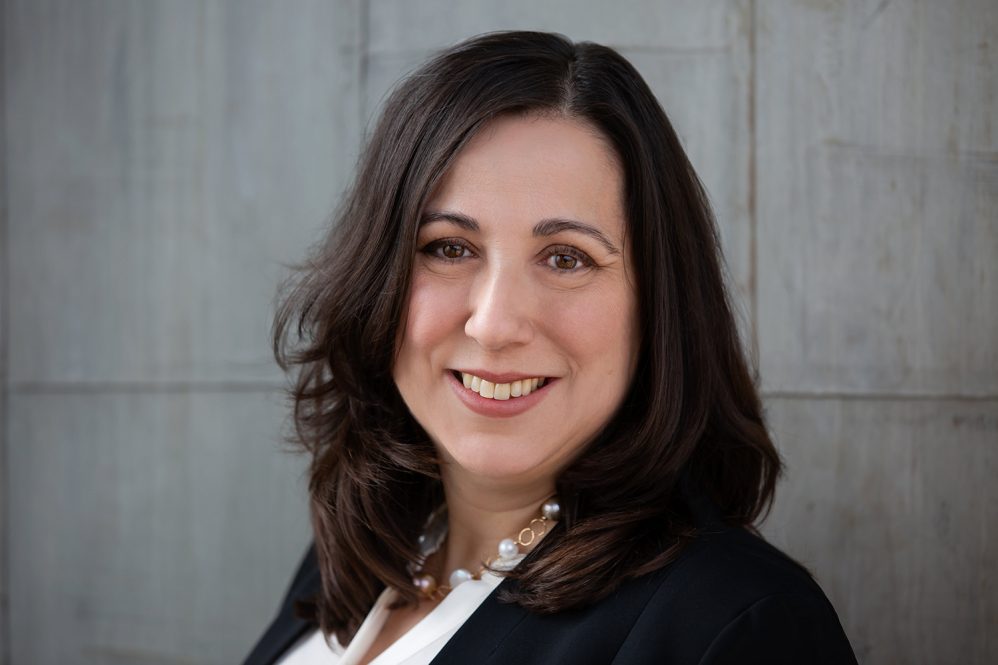When Traci Cipriano ’97 JD , ’07 Ph.D. switched careers from law to clinical psychology, her legal training carried over into her research, which came to focus on attorneys, work-life balance and stress.
That work has yielded a book, drawn from her unique experience and knowledge, “The Thriving Lawyer a Multidimensional Model of Well-Being for a Sustainable Legal Profession,” published by Routledge. The book aims to help lawyers take care of themselves and to encourage their employers to create a supportive workplace culture where attorneys thrive — and so does the firm or company.
“I understood on some level the challenges of the legal profession,” Cipriano said. “But I think once I had stepped away and could really view the profession from outside of it, instead of being immersed in it, I was able to think more deeply about it.”
Her inclination toward psychology and the law are both of long standing. Before law school, she said, “my interests were in psychology, health, law and policy. I also had a strong sense of justice, and I was interested in the intersection of psychology and law.” During law school she volunteered with domestic violence survivors and found herself drawn to the idea of helping people in more than a legal sense.
“I found I was most interested in internal processes and what makes people tick. Ultimately, I decided after a few years of practice that I was going to take the leap and return to graduate school,” she said. She earned a Ph.D. in clinical psychology from UConn in 2007 and now works in independent practice. She also has an appointment as an assistant clinical professor in the Department of Psychiatry at the Yale University School of Medicine. In August she was elected a fellow in the American Psychological Association.
When it comes to self-care and coping with stress, lawyers are not always well-served by their legal training, Cipriano said. They are taught to focus on externalities and how things appear instead of paying attention to what they are experiencing internally.
“You learn your first year of law school that if you let emotion come into the case, you’re going to be irrational, and that’s not the way a lawyer is supposed to think,” she said. The key is for lawyers to understand that emotions are adaptive and can enrich the way one thinks about a situation.
When Cipriano talks to lawyers, or to law students as she did at UConn Law last fall, she goes beyond advice about self-care and strategies to reduce stress. She also talks about the big picture, the many factors influencing well-being, including the importance of purpose and a sense of meaning in life, coping with the financial stresses of law school debt and the crucial role of strong, supportive relationships. When an attorney gets home from work, it can be a challenge to “turn off your lawyer mode and engage with the people around you who are not your colleagues or your adversaries,” she said.
Her model for a wellness framework is a honeycomb that encompasses the intersecting personal and professional aspects of an individual’s life. The key is not just to take specific stress-reducing actions but to integrate the principles of well-being throughout the honeycomb.
While lawyers can do a lot to help themselves, Cipriano believes their employers must also be part of the solution. Leaders in fast-paced, high-stress offices need to see the benefits of flexibility, inclusivity, and respect for employees.
“You want to create what is known as a psychologically safe place, and that term may not resonate well with lawyers,” she said. “You want a place where people feel heard and valued, a place where they feel safe taking psychological risks such as asking for help when it’s needed or saying to a partner, ‘I think I made a mistake. We need to fix this.'”
Changing legal culture is a tall order, but Cipriano sees a rising level of awareness about the importance of attending to the mental health of lawyers. She has been bringing her message to the legal community through her book, through keynote and other speaking engagements, coaching and consultations with law firms law schools and corporate legal departments, and through articles in the trade and mainstream press on mental health, well-being and healthy work environments.
She has also supported reform in the character and fitness assessments in bar admissions, which in many states require applicants to reveal mental health diagnoses and treatment. The American Psychological Association and the American Bar Association have both come to oppose the practice, which stigmatizes those who seek help with mental health issues and can deter law students from seeking treatment when they need it.
Cipriano said she hopes her book will further the conversation about lawyers’ wellness and healthy work environments, help remove the stigma around seeking assistance for mental health issues and encourage attorneys to pursue a healthy work-life balance, starting in law school.
“I’m not saying that we don’t need to work hard,” she said. “But how can we do it better, in a way that people are healthier, performing at their best and thriving?”



